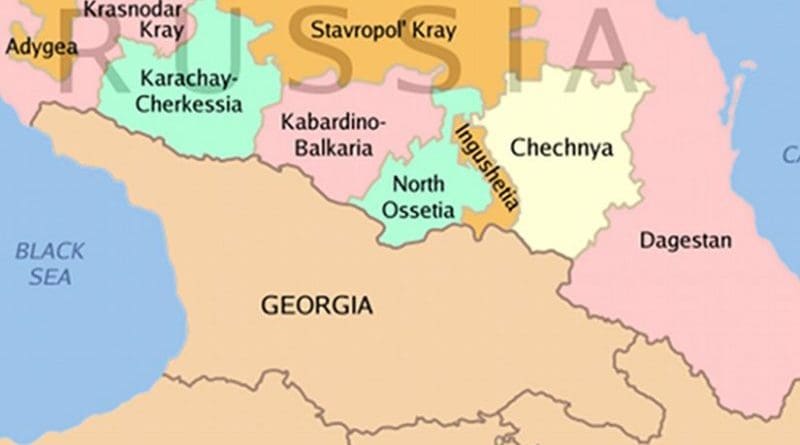Moscow’s Plan For North Caucasus Seen Provoking More Anger – Analysis
By Paul Goble
Moscow’s plan to calm the North Caucasus by investing heavily in that unstable region and moving some of its population to predominantly ethnic Russian regions will not only generate xenophobia among Russians but equally seriously generate demands by other non-Russians for equal treatment, some Russian experts say.
The ways such migration would affect ethnic Russians has attracted a great deal of attention already, but the possibility that this program for the North Caucasus will generate demands for resources and special treatment by other non-Russian groups has received much less (via-midgard.info/news/in_russia/6790-velikoe-pereselenie-narodov-kavkaza-vozmozhno-oni.html).
But the latter impact of the development program for the North Caucasus Federal District may ultimately prove at least as important. On the one hand, Moscow has indicated that Russia is prepared to spend enormous sums to the North Caucasus and give special privileges to North Caucasians to calm the region. Other non-Russians, some experts say, will want the same.
On the other hand, non-Russians elsewhere may learn a lesson just the reverse of the one Moscow wants to send. In the past, those non-Russian republics which cooperated with the center were treated better than those in revolt, but now, under the terms of this new program, that will be reversed, with bad behavior rewarded as it were and good behavior ignored.
The Russian government has approved a program developed by Aleksandr Khloponin, the Presidential Plenipotentiary for the North Caucasus Federal District that calls for the movement of unemployed people there to jobs elsewhere in Russia and for the rapid economic development of the region itself.
To encourage the movement of people, officials say, Moscow is setting up a special agency for labor migration to protect the rights of those who choose to go and providing them with a variety of benefits, including government-subsidized long-term mortgage money, that are not going to be available to anyone else, Russian or non-Russian.
In this way, the experts note, “the powers that be hope to reduce inter-ethnic and social tension in the North Caucasus and to ‘increase the number of those who consider themselves to be member of the ‘[non-ethnic] Russian nation.” Many doubt that this program will succeed in doing that, and they warn of other problems.
Other non-Russian minorities, whose members see the privileges and protections that the North Caucasians are getting, are going to want the same things. And the experts say, they are certain to try to force Moscow’s hand by acting in ways that will provoke more xenophobia, more inter-ethnic conflicts and more open protests.
Moscow has already approved financing for various projects in the North Caucasus in the amount of 242 billion rubles (eight billion US dollars) in 2013 alone, and experts say that they expect the Russian powers that be to invest an addition 160 billion rubles (two billion US dollars) there by that date.
But Moscow’s concessions to the North Caucasians are not limited to money alone. The Russian authorities are creating and expanding special “territorial development zones,” where taxes will be excused for some years and special financing will be arranged and where oil exporters will not have to pay the export tariff at least for a time.
By taking these steps, officials in Moscow clearly “hope that the North Caucasus will soon become an attractive region for those living there and will increase the number of those who identify as members of ‘the [non-ethnic] Russian nation.’” Achieving either will be difficult if not impossible, all the more so because other groups are going to want equal treatment.
Negative reaction to the idea of moving large numbers of North Caucasians to predominantly ethnic Russian regions has been so intense that Moscow has been forced to back down, with Khloponin insisting that media reports on that regard had “distorted the strategy” to the point that it can’t be recognized. He insisted any movement would be voluntary.
And it is entirely likely that over the next year or so, Moscow will back away on the funding as well because of increasing criticism by Russians who believe that sending money to the North Caucasus is throwing good money after bad and also by other non-Russians who will want more funds for themselves instead of seeing money go to those who have behaved badly.

